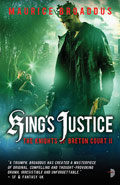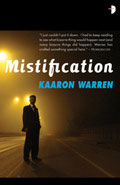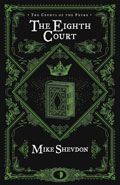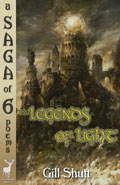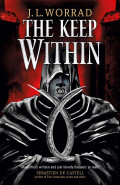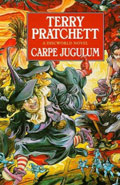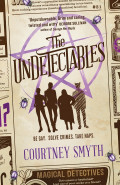Firefight
By Brandon Sanderson
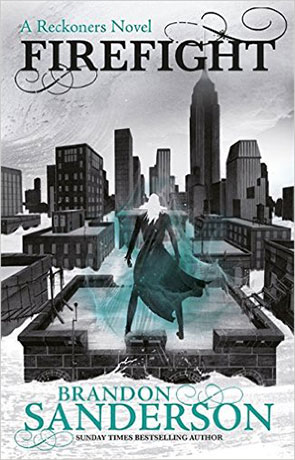
- Firefight
-
Author: Brandon Sanderson
-
Publisher: Gollancz
- ISBN: 978-0575104495
- Published: November 2015
- Pages: 432
- Format reviewed: Hardback
- Review date: 01/02/2016
- Language: English
- Age Range: 15-
Brandon Sanderson needs little introduction: wantonly imaginative; rollicking action scenes; well thought-out magic systems. Firefight, the second book in his YA Reckoners series is perhaps less well known, and centres on a group of humans in post-apocalyptic American cities hunting evil X-Men - sorry, ‘Epics’, given powers by the giant red orb hovering around in the sky called ‘The Calamity’ that suddenly appeared one day.
In the series opener Steelheart, young protagonist David grows up in a Chicago ruled by the eponymous Epic who’s established a brutal, caste-based society - but at least it’s a working society. Compared to the other large human settlements ruled by Epics, who are usually driven mad by their power and kill and destroy for sport, Chicago is a safe haven. After David’s father is killed by Steelheart in a bank-raid, the young boy seeks out the Reckoners, a shadowy resistance group, and convinces them by dint of his obsessive research into the potential weaknesses of Epics to let him join.
It’s an interesting twist on the usual formula - that the heroes are desperately weak compared to their mutant overlords - despite it being nearly totally unexplained how these powers came to be by the end of Firefight. The Epics’ powers, their weaknesses, and how both are derived are David’s major obsessions but he’s also the team’s point man, as capable and quick-thinking as he is reckless and selfless. He makes for one of Sanderson’s less compelling protagonists, as he frequently seems to triumph and survive by sheer dint of being a bit dense and having a cheeky smile. Furthermore, his terrible ability at metaphors is a running ‘joke’ throughout the book and series, but the vast majority of them fall totally flat even as ‘so bad they’re good’ jokes and his persistence in using them is disinteresting at best and painful at worst.
The supporting cast of the Reckoners often fare better, strangely. Figures such as ‘Prof’, the good Epic who leads the group is a quiet, strong man tortured by desire to use his powers but knowing they’ll ultimately lead to his un-doing if not used sparingly. It’s through him we see the most interesting insights into the nature of an Epic’s powers and indeed the nature of power itself. He is however, somewhat of a deus ex machina, and seemingly has a power for every situation.
The Epics themselves have an intriguing array of powers but with the exception of the titular character, an Epic whose going under-cover in the first book as a Reckoner agent helps her regain some humanity, they’re all just comically villainous. There’s even one called Obliteration who has the ability to photosynthesise the power to level an entire city and quotes scripture. It’s just too obvious.
As E.B White says, it’s a waste of time writing down to children. The OTT nature of the Epics and the ‘absolute power corrupts absolutely’ maxim, running metaphor gag (spoiler: they’re actually similes…) and David’s over colloquialism among others spoil what could otherwise be a compelling set up and an interesting moral grey-area.
That said, Sanderson is a masterful page-turner and never falters in an action sequence, so if you’re a dedicated fan or looking for another perspective on the super-mutant trope, Firefight will deliver. Just don’t expect to come away with a fondness for running grammar jokes.
Written on 1st February 2016 by Danny.
